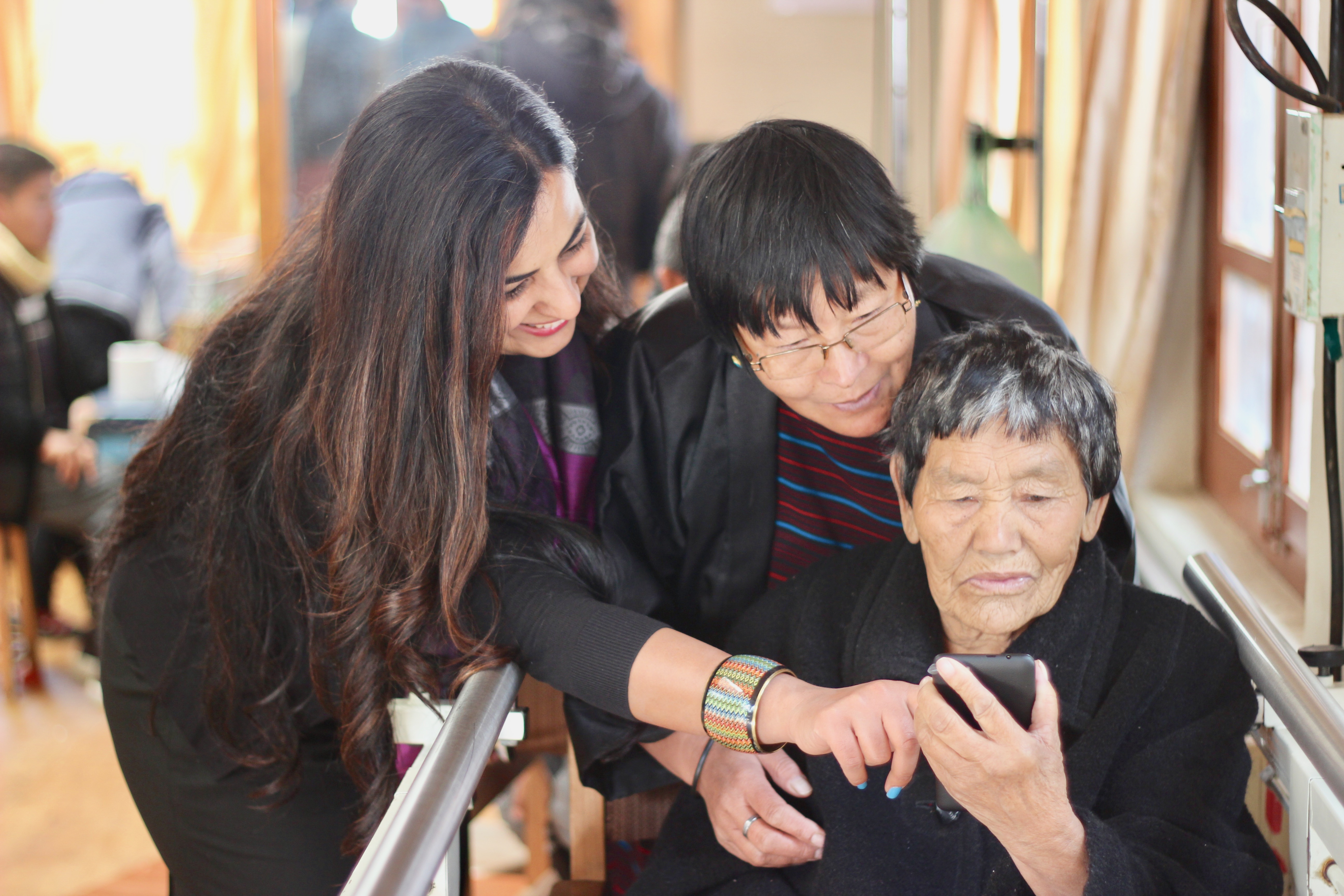Different cultures around the world emphasize on giving back. I grew up learning “seva” from my parents and grandparents. “Seva” in Indian culture means selfless service. It means doing good for others while not expecting anything back. In a bigger picture, this blends into the concept of “Karma” which means good deeds of helping others contribute to worthy, meaningful and happy life.
The importance of Seva was emphasized to me in family and they led by example. My grandparents living in rural India didn’t have much financially. This didn’t stop them from doing good for others. My grandad used to pick up his rusty old bike and ride along the unpaved roads between fields to go to small houses of villagers living in the poor areas to help them. My childhood memories are composed of opening the large door of his beautiful hand painted large concrete house with a big colorful veranda where villagers used to come for support and shelter. There was a joy and a musical laughter in the air which came from being good to each other which is hard to define in words.
My dad continued the tradition of seva. Every Tuesday, we used to go to medical camps and donate food and supplies to people suffering with leprosy, polio or other disabilities. I used to look forward to Tuesdays. To see people smile because of what I did led to a deep sense of fulfillment.
Why is Giving Back important?
It opens up our minds and hearts to humanity and a bigger purpose of making this world better. It is easy to get locked in our troubles, failures, disappointments, problems, deadlines, societal pressures, social media reputation, comparison with others and pain from physical or mental illness.
Thinking and actually doing good for others always helped me center myself to a bigger purpose and deeper meaning in life. Gandhi said “The best way to find yourself is to lose yourself in the service of others”. We are all connected as humans and alleviating pain of others is a privilege. Finally, it is our choice to make this world better for our children and future generations.
As a physician and brain imaging expert, it is fascinating to me how giving back affects our brain. Scientifically speaking studies including the one published by Tristen Inagaki, Ph.D., from the University of Pittsburgh and Naomi Eisenberger, Ph.D., of University of California, Los Angeles (UCLA) in Feb 2016 in Psychosomatic Medicine have shown that giving can stimulate portions of the brain on functional MRI which can reduce stress and activate portion of the brain which functions as reward system of the brain.
How to give back?
Few years back, I finally followed my dream to create an organization which was inspired by “seva”. A completely volunteer driven organization, this nonprofit aims to bring health to all corners of the world using free education, technology and kindness. Health4theworld has helped me grow as a person and have a positive impact in lives of people who I had always wanted to help. In this journey, I have been inspired by the passion of humanity to give back, the resilience of people who fight diseases with courage and the goodness in the universe. It helps me to tune out of the negative news, look at the positive which exists in the world in abundance and work on solutions for good with volunteers. I have also found that each of us irrespective of our profession has a lot to give back to make this world better more than we ourselves know.
These are some practical ways which you might find useful in your journey of giving back:
1. Find a cause which you are passionate about. It can be human rights, animal welfare, health, refugees, education or something else.
2. Volunteer: Find a nonprofit which is working in the area which you are passionate about. You can try websites like volunteer match or idealist or multiple others. You can find remote online volunteering opportunities or onsite opportunities depending upon your time availability.
3. Donate: This can also be few dollars or more. More than the amount, it is the intention to contribute and to be a part of a larger mission. You can also choose a charity on Amazon smile for Amazon to donate to when you shop online. When you do grocery shopping, you can choose to donate. I recently donated my baby shower to a campaign to bring smiles to moms and babies in Cameroon, Africa. So, events like birthdays can be donated for a good cause too. This is particularly helpful for kids to teach them by example and nurture values to give back to the community.
4. Advise: Generally, nonprofits are looking for Advisors who will be like a guiding light in different aspects of their operations. By being a part of their advisory board, you can utilize your knowledge and skills to advise for a particular component of operations.
5. Lead: Start a chapter of a nonprofit and lead to make a difference in your local community.
6. Raising awareness on social media: support the causes and organizations which you are passionate about on social media. Raising awareness about these causes can start movements which can make a difference in lives of others.
7. Set an example: Follow your dreams and make choices which help others. In small or big ways, whatever you do is important and you matter. There is no one like you and you have something to make lives of others better.
Your small acts of kindness can make a world of difference in someone’s lives. As Confucius said “Wherever you go, go with all your heart.” Whatever your passions are for the causes you believe in, you can make a difference. The world of selfless giving is full of happiness and meaningful moments to cherish for a lifetime. I wish you luck in your personal journeys of bringing smiles in lives of others.
Cheers,
Bhavya


